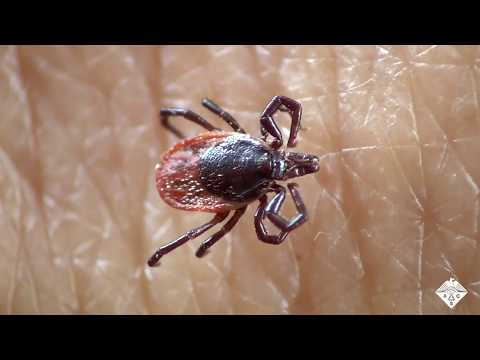Saliva from a tick’s bite can transmit pathogens that cause serious illnesses, such as Lyme disease. They can also lead to significant agricultural losses. Current insecticides have drawbacks, so scientists have been seeking new ways to prevent these pesky arachnids from spreading pathogens. Researchers at Louisiana State University are working on a way to kill […]

Saliva from a tick’s bite can transmit pathogens that cause serious illnesses, such as Lyme disease. They can also lead to significant agricultural losses. Current insecticides have drawbacks, so scientists have been seeking new ways to prevent these pesky arachnids from spreading pathogens. Researchers at Louisiana State University are working on a way to kill ticks by targeting their salivary glands, noting that saliva plays a number of key roles in a tick’s ability to drink blood. Using a potassium channel inhibitor they developed, researchers were able to make the ticks produce less saliva. The ticks subsequently drank dramatically less blood and then died within 12 hours, which prevents ticks from transmitting pathogens, such as Lyme disease.

